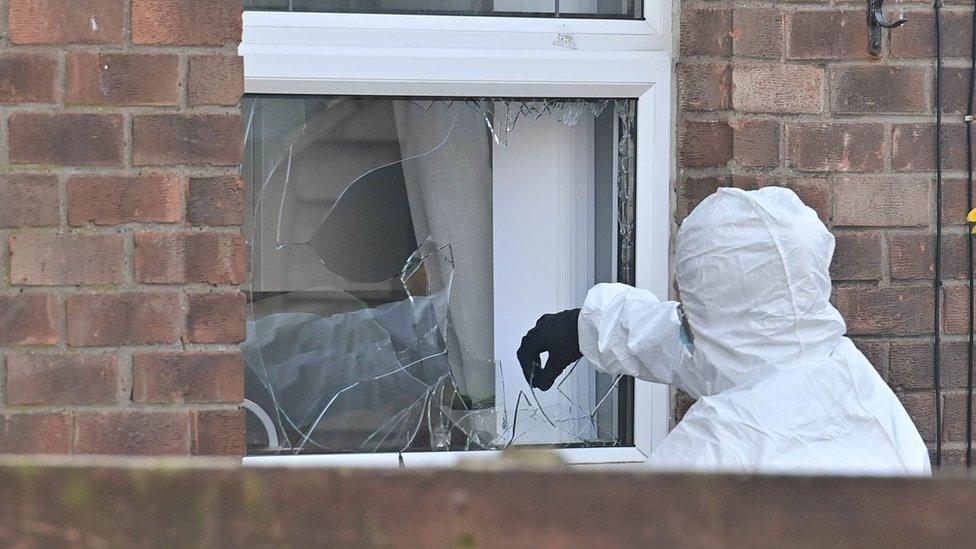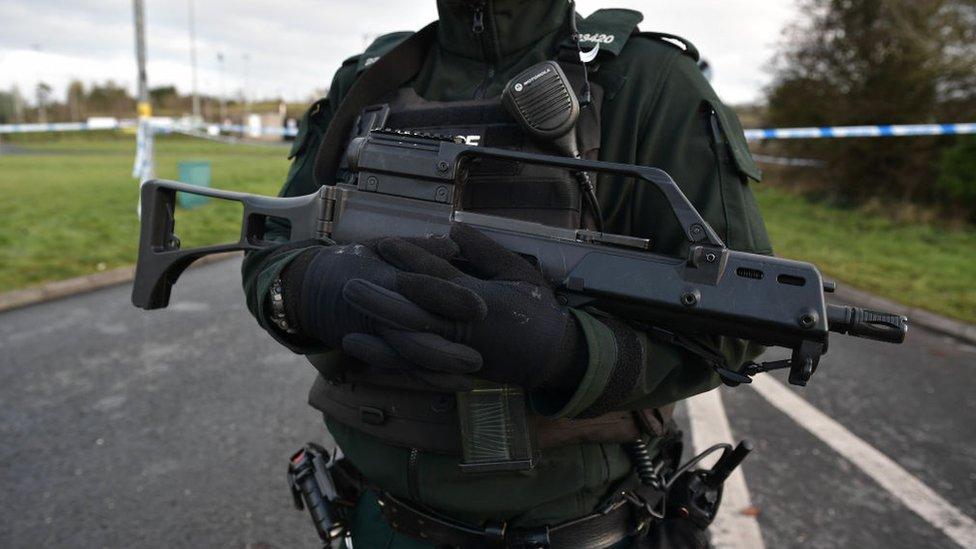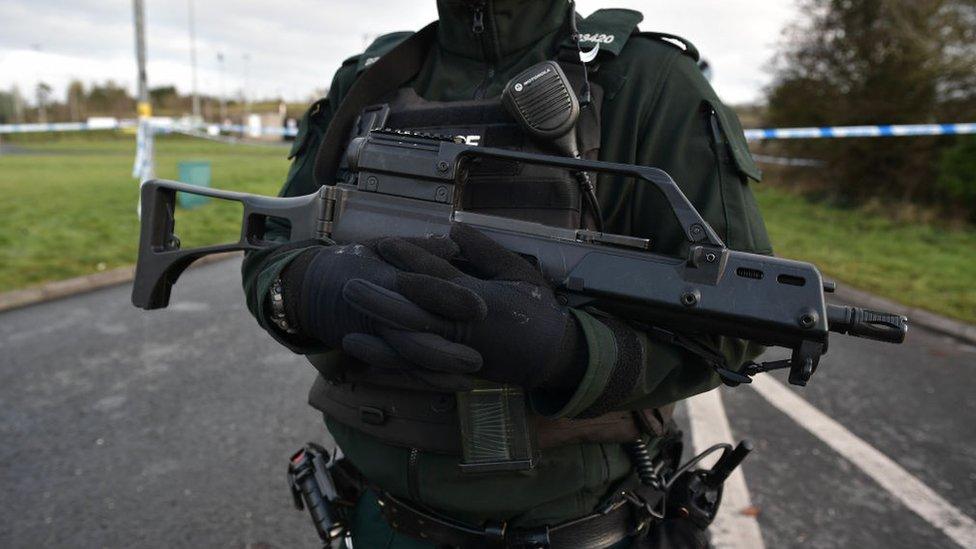PSNI: Civilian police staff feel undervalued by danger money
- Published

A quarter of Police Service of Northern Ireland staff work in roles such as crime scene analysis and answering 999 calls
About 2,500 police staff feel undervalued by the fact a danger money allowance has largely remained unchanged for 33 years.
Staff receive this money on top of their wages in recognition of the terrorist threat, which is currently set at severe.
They are currently paid an allowance of £580 a year, compared to £3,666 received by their officer colleagues.
Police staff receive the same security guidance as officers.
"We all check under our cars and are under the same threat," said Nipsa trade union official Tracy Godfrey.
'We are under the same threat'
The Police Service of Northern Ireland (PSNI) is an organisation of more than 9,000 people - three quarters of whom work as police officers.
The remaining staff perform a variety of roles such as 999 call handling and crime scene work.
They receive what is called a revised environmental allowance, commonly referred to as danger money.
Tracy Godfrey: "We all check under our cars and are under the same threat"
It was introduced in 1990 and since then has risen only once, by 1%.
It is not linked to pay awards, unlike the Northern Ireland Transitional Allowance (NITA) which is given to officers.
Staff believe the allowance should be twice what it currently is and Chief Constable Simon Byrne supports them, according to Ms Godfrey.
"When it was first awarded we were doing backroom roles," she said.
"But now, with civilianisation over the years and the front-line roles we do, we are dealing with the public and under the same threat as our officer colleagues.
"Coming in and leaving police stations, who is going to know the difference between who is a police officer and who is a staff member?"
'No real progress'
At least one civilian employee is believed to have been targeted by dissident republicans in recent years.
"The Department of Justice (DoJ) is the problem," claimed Ms Godfrey.
"We have put in a business case which the chief constable signed off on in 2020 asking for just over £1,000.
"It has been going back and forward for years with no real progress.
"I don't think they recognise the work that we do.
"If I were to ballot members to strike on this one issue we would have everybody out."
The PSNI's assistant chief officer for people and organisational development, Clare Duffield, said the service want all staff to be rewarded "fairly and equitably" for the work they do.
"Police staff are paid under the Northern Ireland Civil Service terms and conditions," she said.
"The Police Service of Northern Ireland has agreed to uplift a revised environmental allowance paid to police staff. We await approval in order to implement this."
The Department of Justice said it "greatly values the work of everyone involved in delivering a fair, just and safe community in Northern Ireland".
"Police staff, sometimes referred to as civilian staff, play an important role in that," it added.
"All civilian police staff receive a revised environmental allowance in addition to their pay.
"The department is currently considering a business case and is awaiting updated legal advice from PSNI in regard to this."
The Policing Board said it would have the opportunity to discus the matter with the chief constable at a private meeting this week.

What are the threat levels?
There are five:
CRITICAL means an attack is expected imminently
SEVERE means an attack is highly likely
SUBSTANTIAL means an attack is a strong possibility
MODERATE means an attack is possible, but not likely
LOW means an attack is unlikely
Read more: How do terrorism threat levels work?

- Published14 August 2023

- Published28 March 2023
